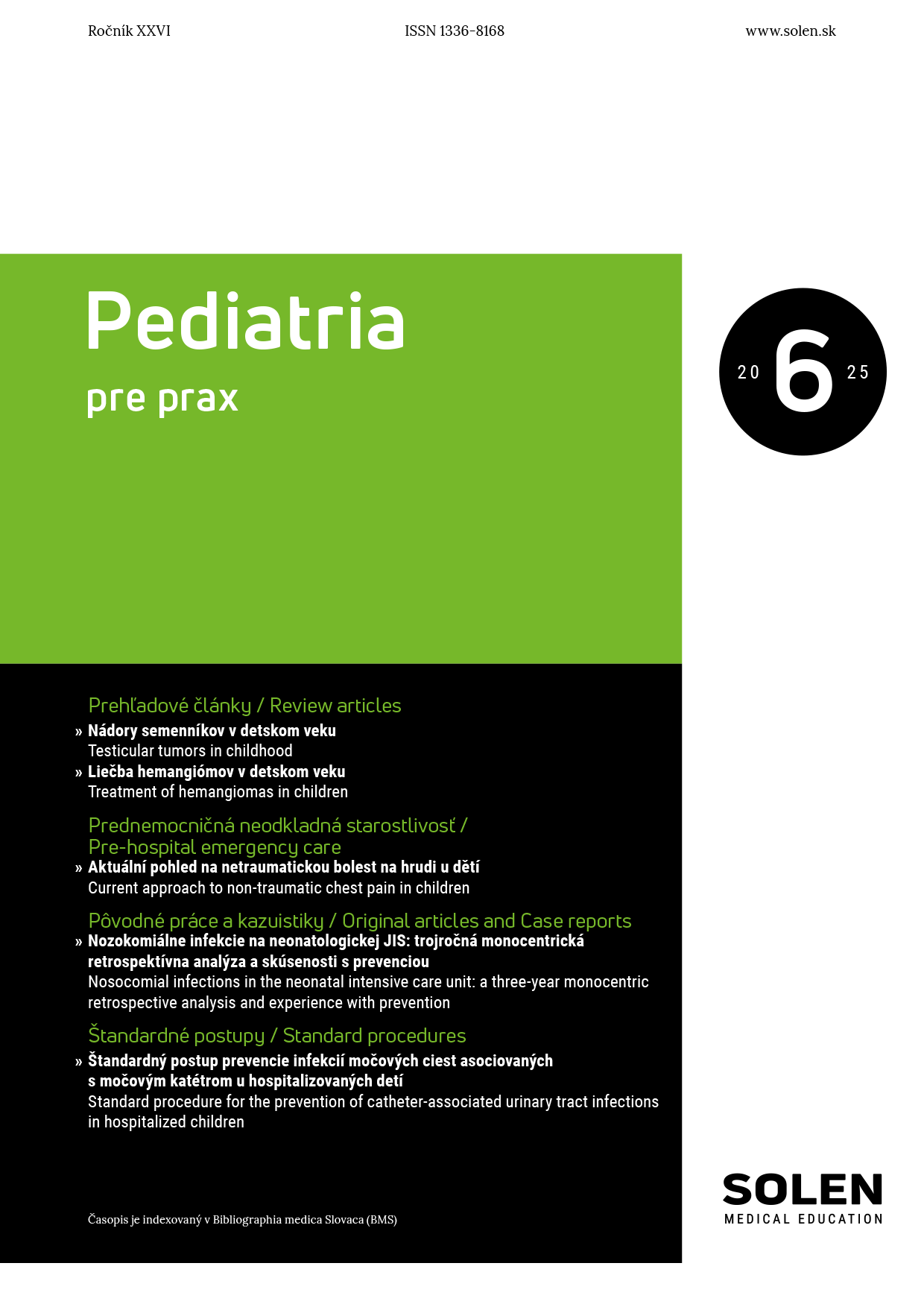Psychiatria pre prax 2/2025
Skúsenosti vysokoškolských študentov s gaslightingom
MUDr. Zuzana Vančová, PhD., RNDr. Marcela Valko-Rokytovská, PhD.
Úvod: Gaslighting je forma emocionálneho abúzu, pri ktorej jedna osoba systematicky spôsobuje, že druhá osoba pochybuje o vlastných myšlienkach, pocitoch, spomienkach a presvedčeniach. Takéto správanie vedie k zmätenosti, úzkosti a strate sebavedomia u cieľovej osoby, ktorá síce cíti, že niečo nie je v poriadku, ale nedokáže presne identifikovať príčinu svojho diskomfortu. Dôsledky gaslightingu môžu výrazne narušiť každodenné fungovanie, osobnú pohodu a medziľudské vzťahy – často sa objavuje depresia, úzkosť, nespavosť, nízka sebadôvera a negatívny sebaobraz. Tento prieskum je zameraný na hodnotenie expozície gaslightingu v partnerských vzťahoch pomocou dotazníka GREI (Gaslighting Relationship Exposure Inventory, Dotazník vystavenia gaslightingu vo vzťahu).
Súbor a metódy: Prieskum mal charakter prierezovej štúdie a realizoval sa prostredníctvom papierových dotazníkov. Do času štatistickej analýzy dotazník vyplnilo 60 študentov rôznych študijných odborov vyučovaných na I. psychiatrickej klinike Lekárskej fakulty Univerzity Pavla Jozefa Šafárika v Košiciach. Hlavným výstupným ukazovateľom bola prítomnosť skúsenosti s gaslightingom. Na analýzu vplyvu demografických premenných (pohlavie, súčasný vek, vek pri začiatku skúsenosti, trvanie skúsenosti, miesto bydliska) na kumulatívne skóre dotazníka bola použitá viacnásobná lineárna regresia.
Výsledky: Štatistická analýza identifikovala dva faktory, ktoré mali štatisticky signifikantný vplyv na výšku kumulatívneho skóre dotazníka. Prvým faktorom bol vek začiatku skúsenosti – čím skôr sa respondenti stretli s gaslightingom, tým vyššie skóre dosiahli (p = 0,028). Druhým faktorom bola dĺžka skúsenosti – dlhšia expozícia sa spájala s vyšším kumulatívnym skóre (p = 0,038). Pohlavie a miesto bydliska nevykazovali štatisticky významný vplyv na výsledné skóre.
Záver: Výsledky naznačujú, že gaslighting je medzi univerzitnými študentmi rozšíreným javom. Skúsenosť s týmto fenoménom uviedlo 49 z 60 respondentov. Štatisticky významnými prediktormi vyššieho skóre v dotazníku GREI boli nižší vek pri začiatku skúsenosti a dlhšia expozícia tejto skúsenosti. Výsledky poukazujú na potrebu väčšej pozornosti venovanej včasnému rozpoznaniu gaslightingu v partnerských vzťahoch mladých dospelých.
Kľúčové slová: gaslighting, vzťahy, vysokoškolskí študenti, GREI dotazník
University students' experiences with gaslighting
Introduction: Gaslighting is a form of emotional abuse in which one person systematically causes another to doubt their own thoughts, feelings, memories, and beliefs. Such behavior often leads to confusion, anxiety, and a loss of self-confidence in the targeted individual, who may sense that something is wrong but cannot precisely identify the source of their discomfort. The consequences of gaslighting can seriously disrupt daily functioning, personal well-being, and interpersonal relationships common effects include depression, anxiety, insomnia, low self-esteem, and a negative self-image. This study is focused on assessing exposure to gaslighting in romantic relationships using the GREI (Gaslighting Relationship Exposure Inventory).
Sample and Methods: The survey was designed as a cross-sectional study and was carried out using paper-based questionnaires. The sample consisted of 60 students from various academic programs taught at the 1st Department of Psychiatry of Medical Faculty of P.J. Šafárik University in Košice. The main outcome measure was the presence of personal experience with gaslighting. Multiple linear regression was used to analyze the combined influence of demographic variables (gender, current age, age at the onset of the experience, duration of the experience, and place of residence) on the cumulative GREI score.
Results: Statistical analysis identified two factors that had a statistically significant effect on the cumulative GREI score. The first was the age at the onset of the experience — with earlier experiences correlating with higher cumulative scores (p = 0.028). The second factor was the duration of the experience — longer exposure was associated with higher cumulative scores (p = 0.038). In contrast, gender and place of residence did not show a statistically significant influence on the results.
Conclusion: The results suggest that gaslighting is a prevalent phenomenon among university students. Only 11 out of 60 respondents reported no experience with this phenomenon. Statistically significant predictors of higher GREI scores were younger age at the onset of the experience and longer duration of exposure. The findings highlight the need for greater awareness, early recognition, and intervention in cases of gaslighting in romantic relationships among young adults.
Keywords: gaslighting, relationships, university students, GREI questionnaire

















